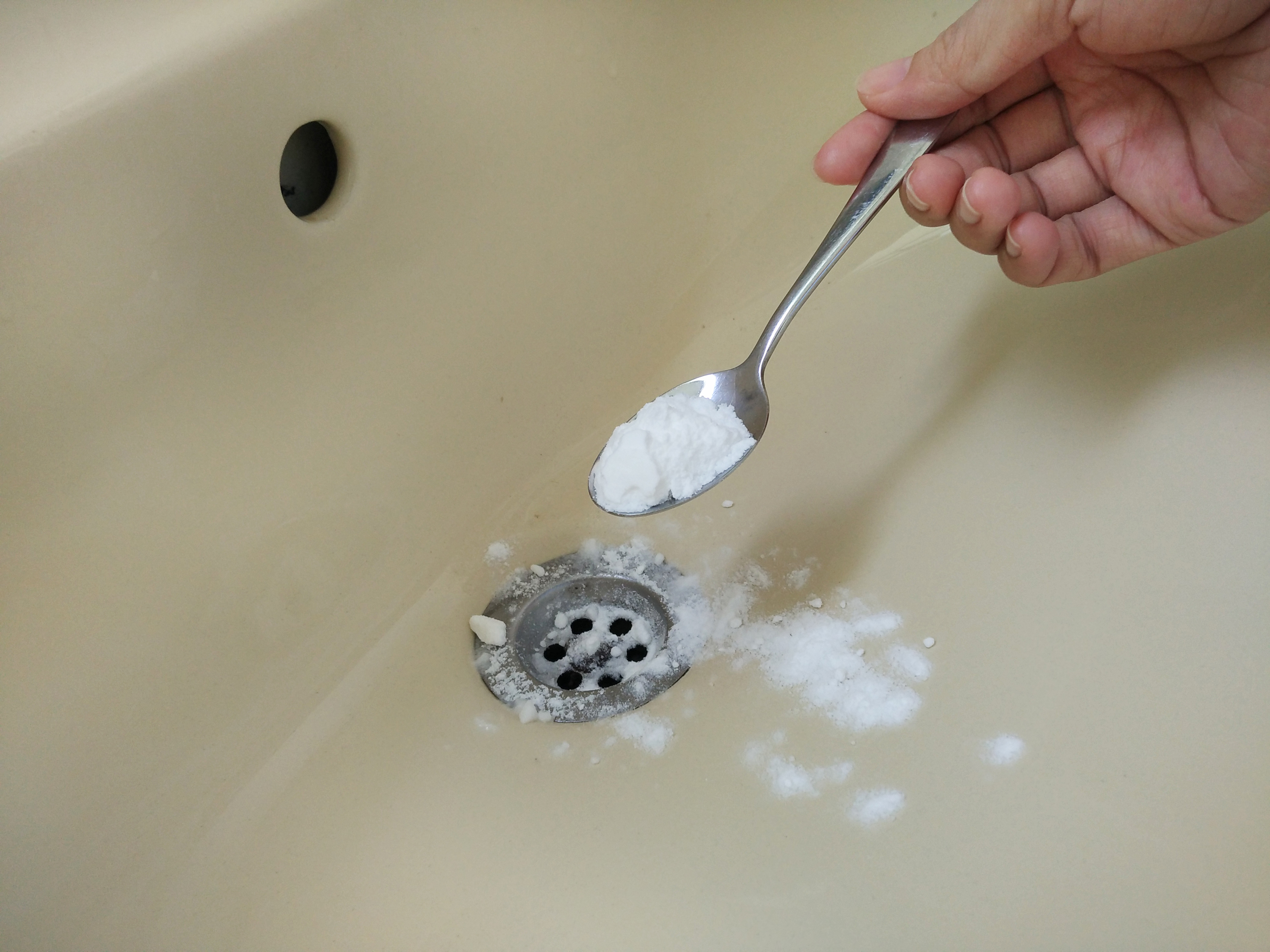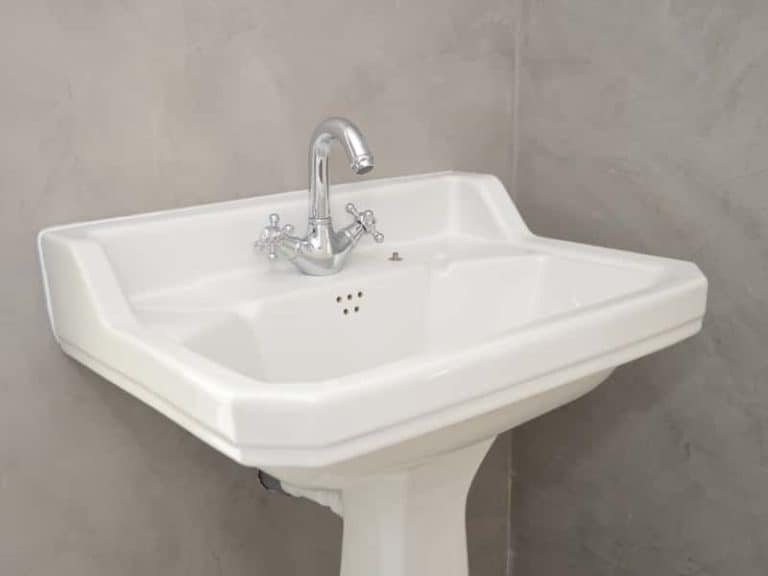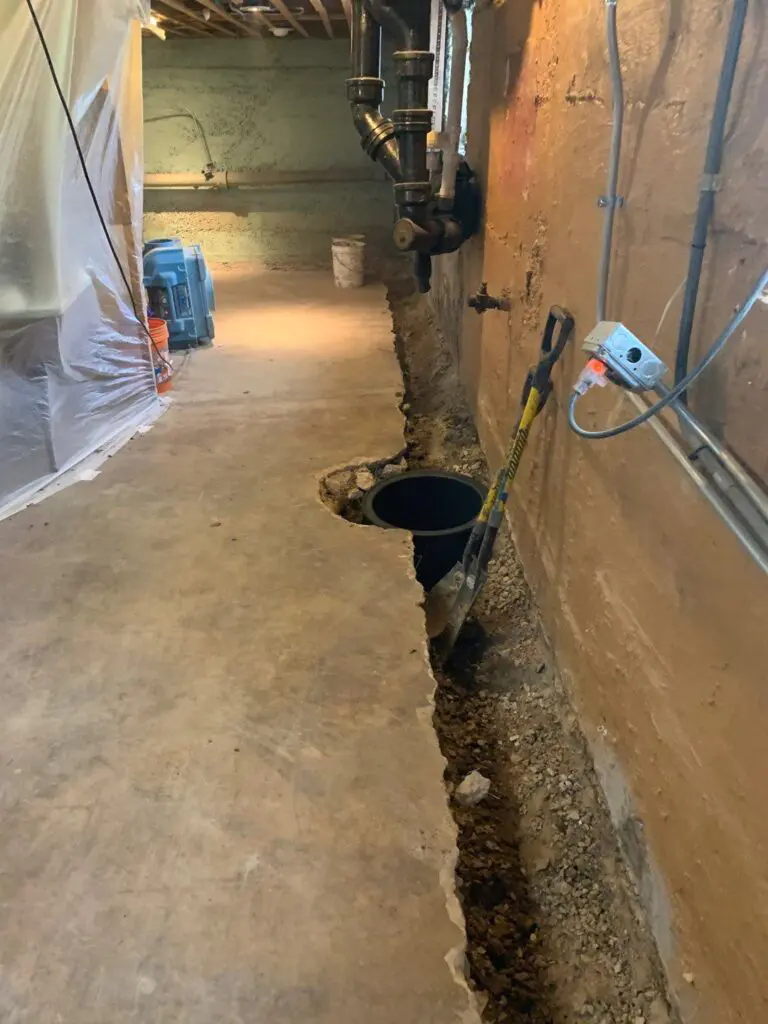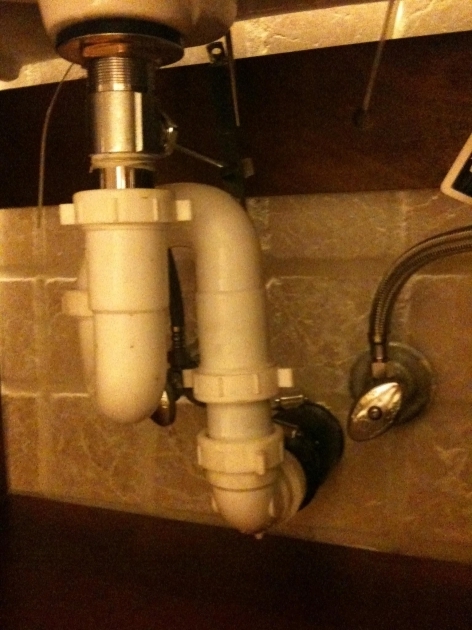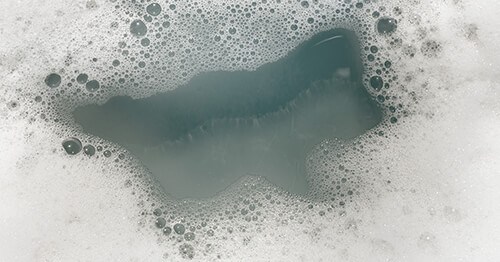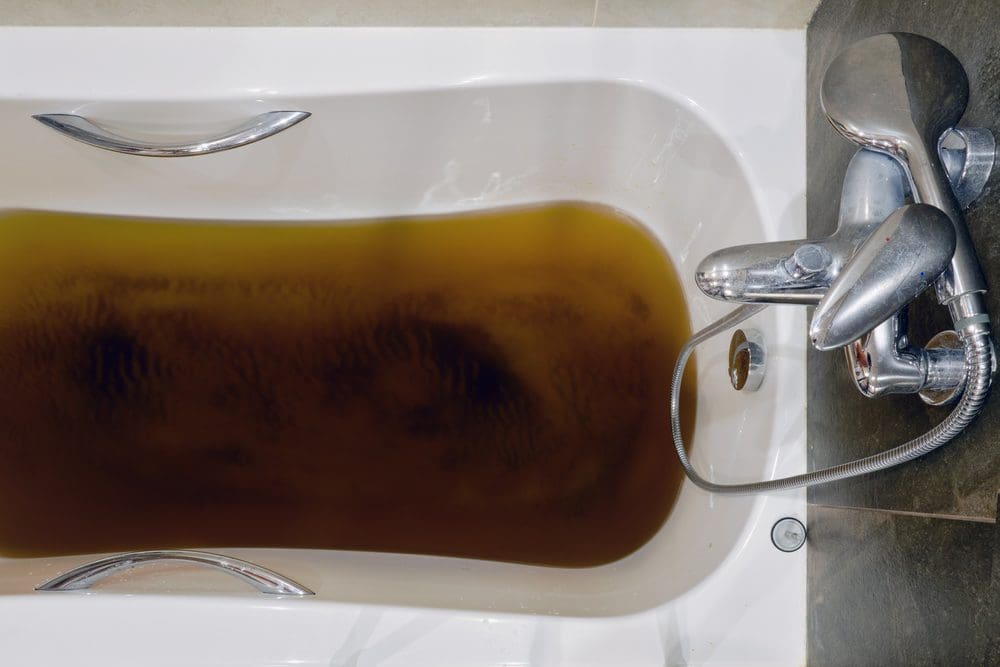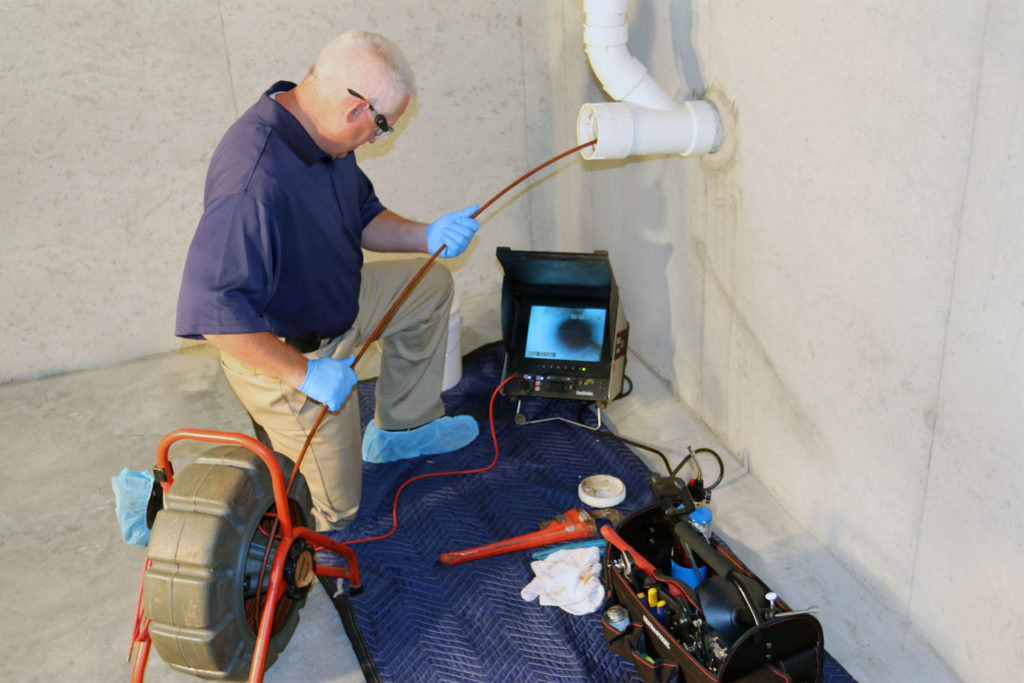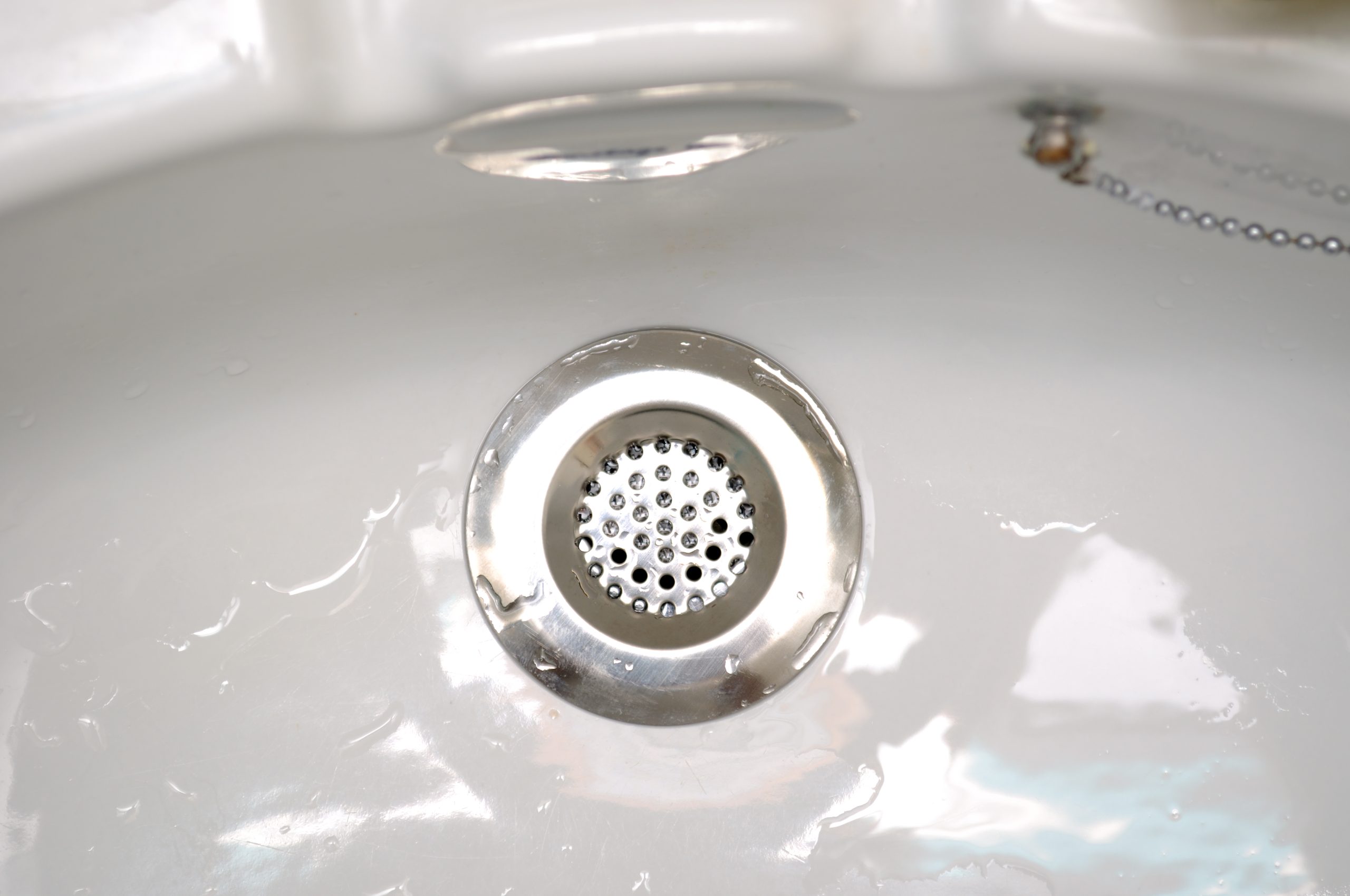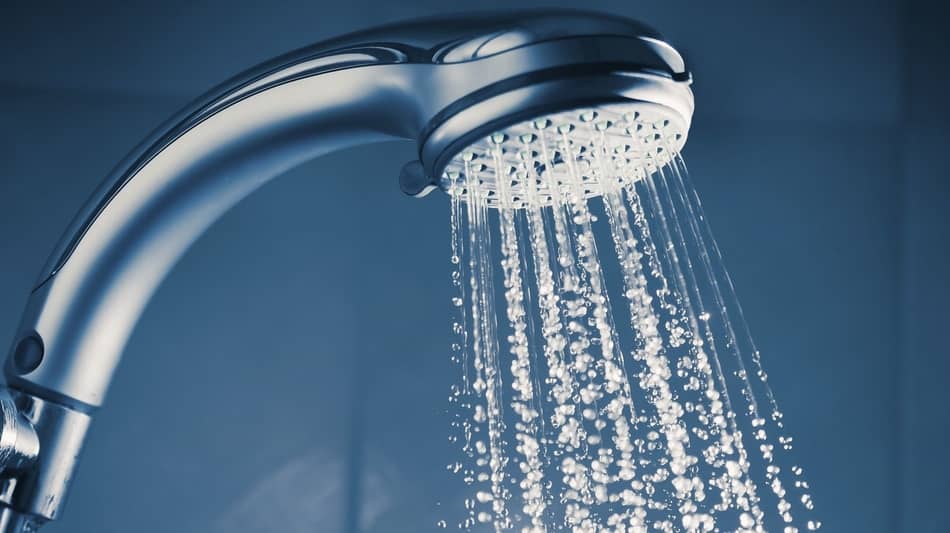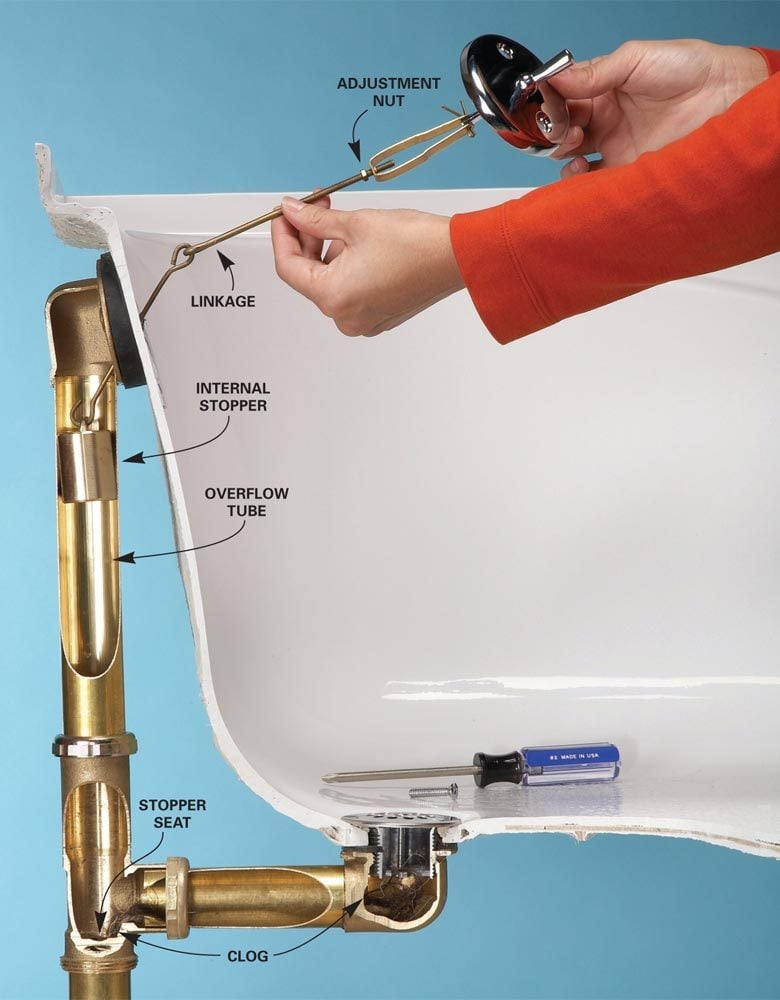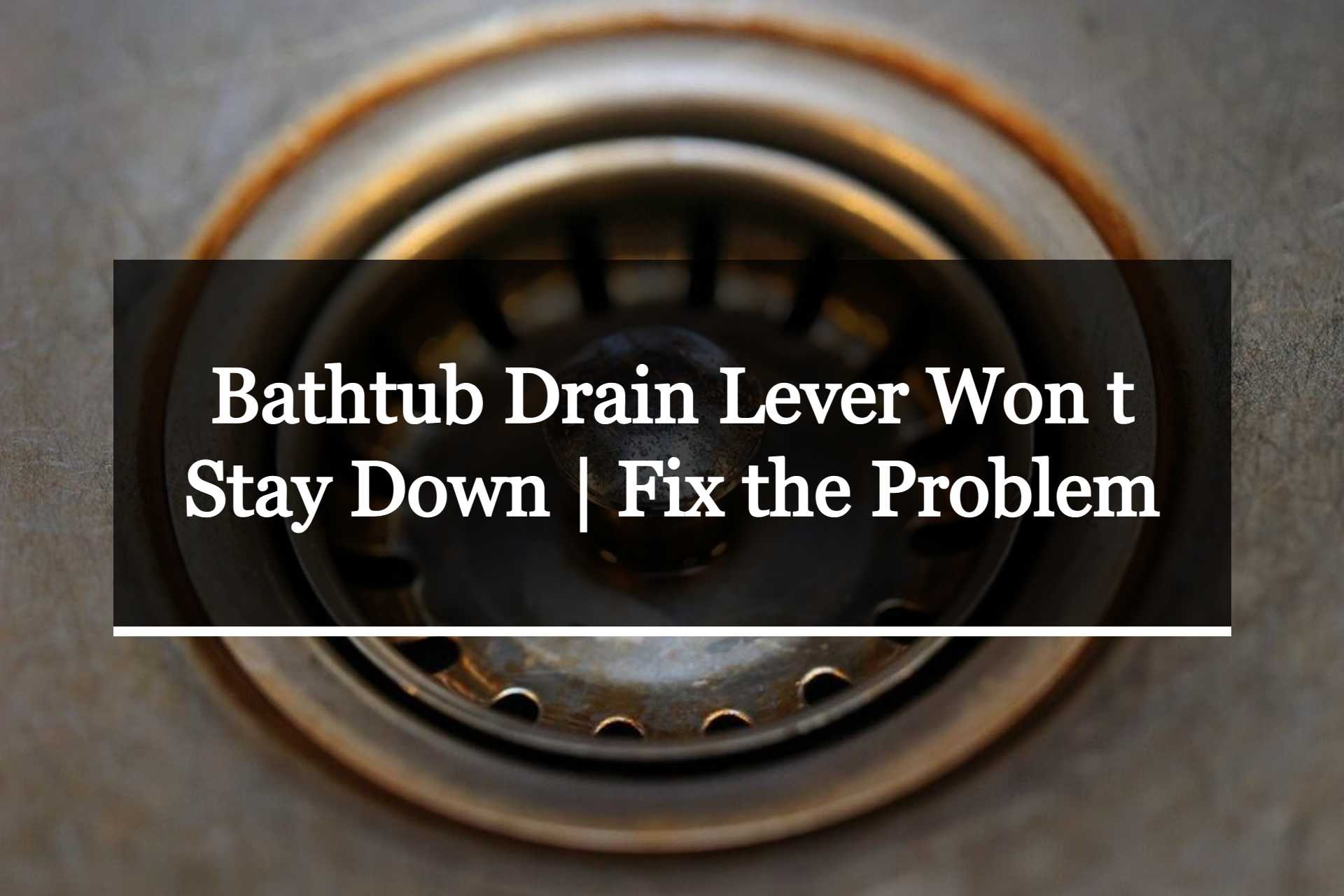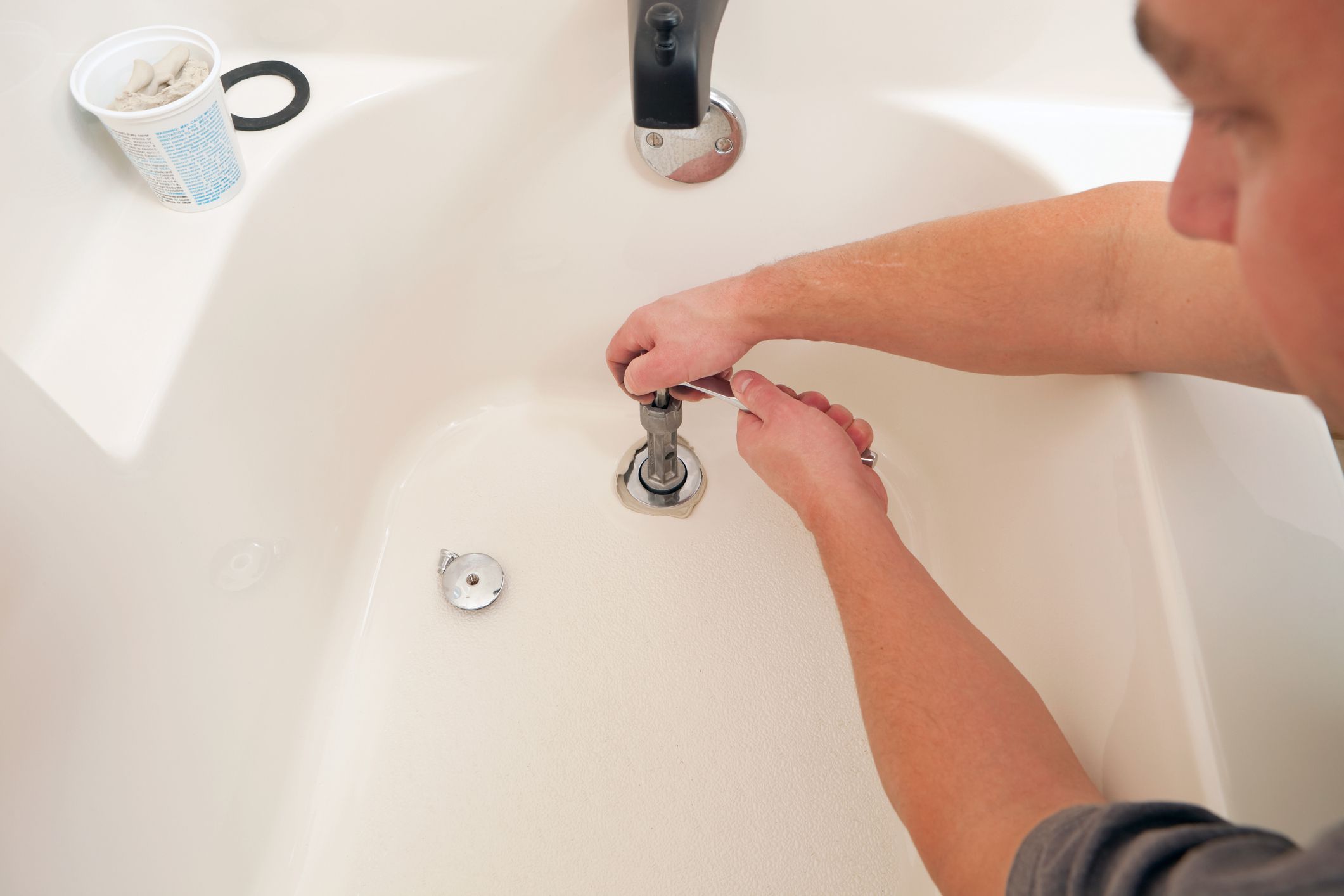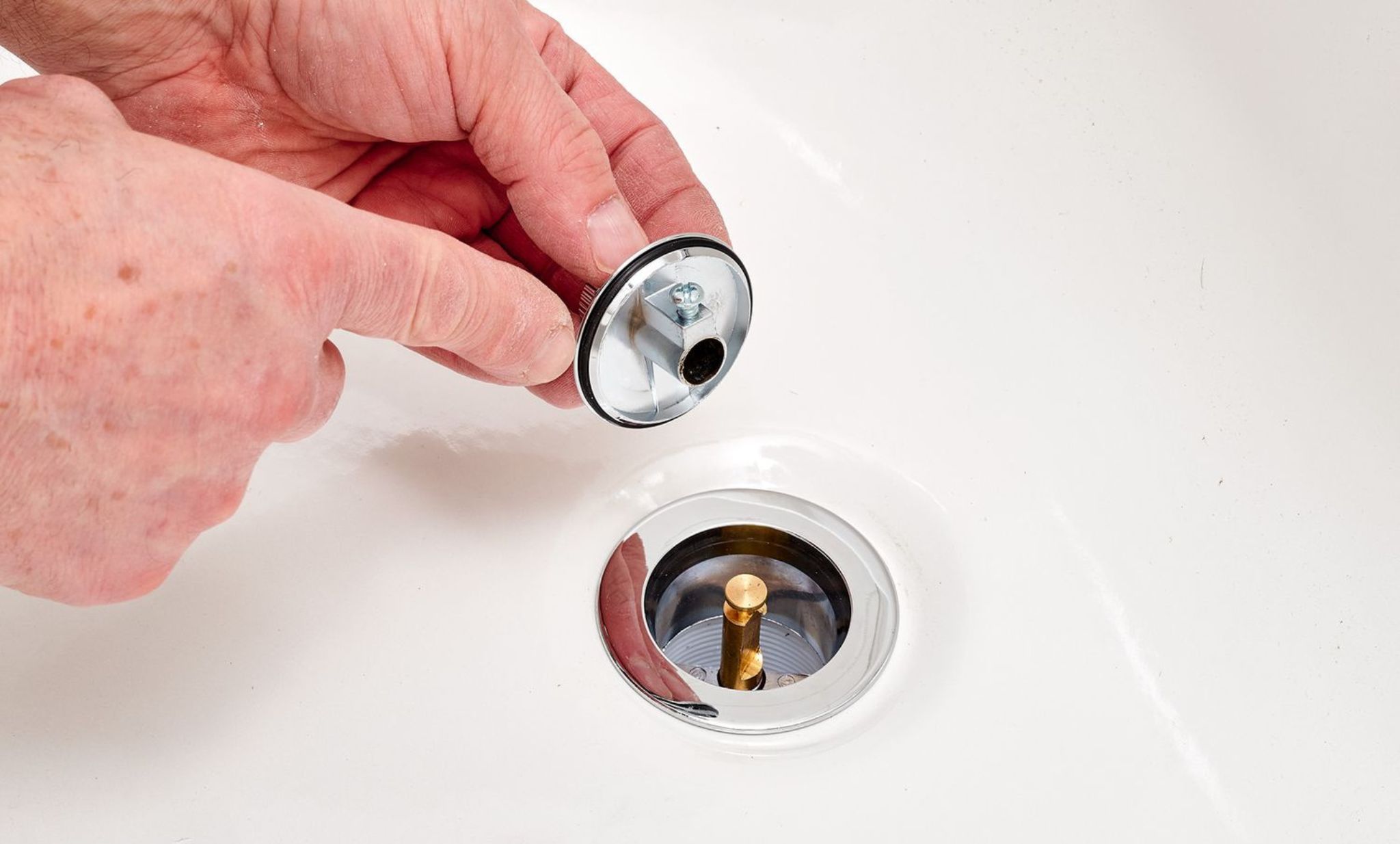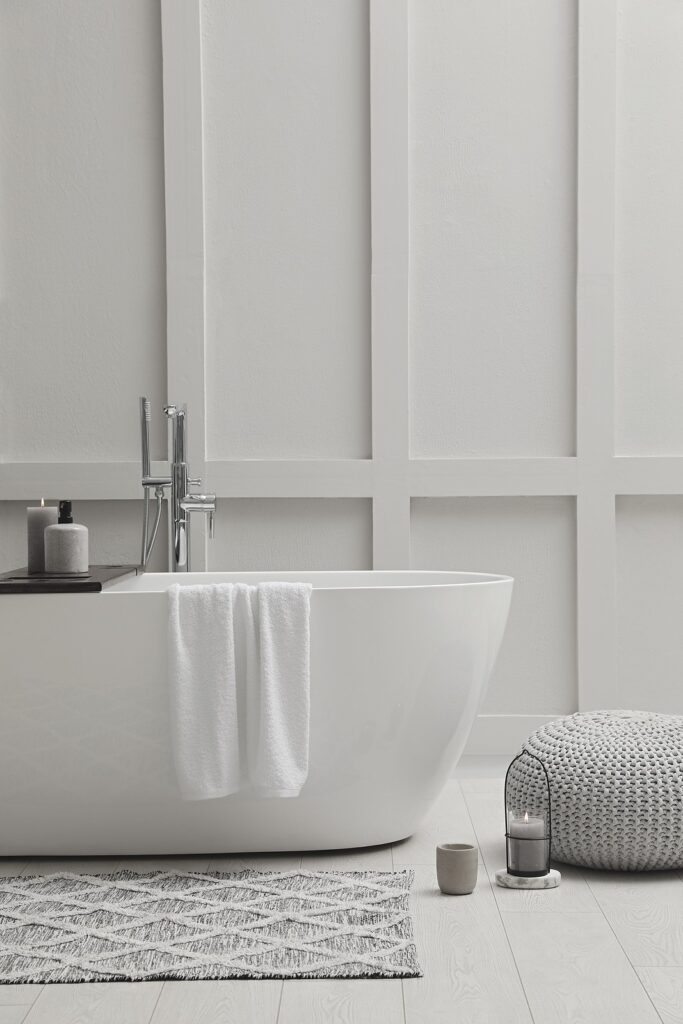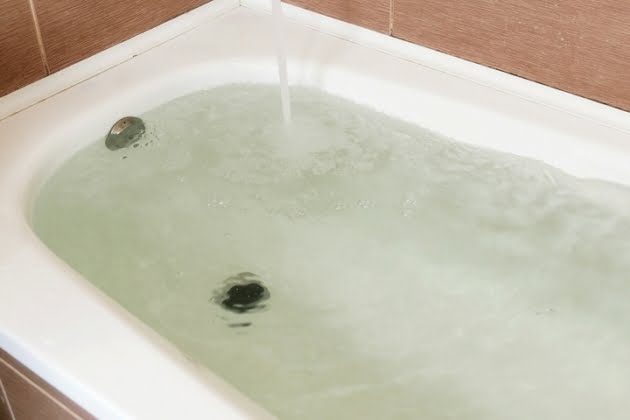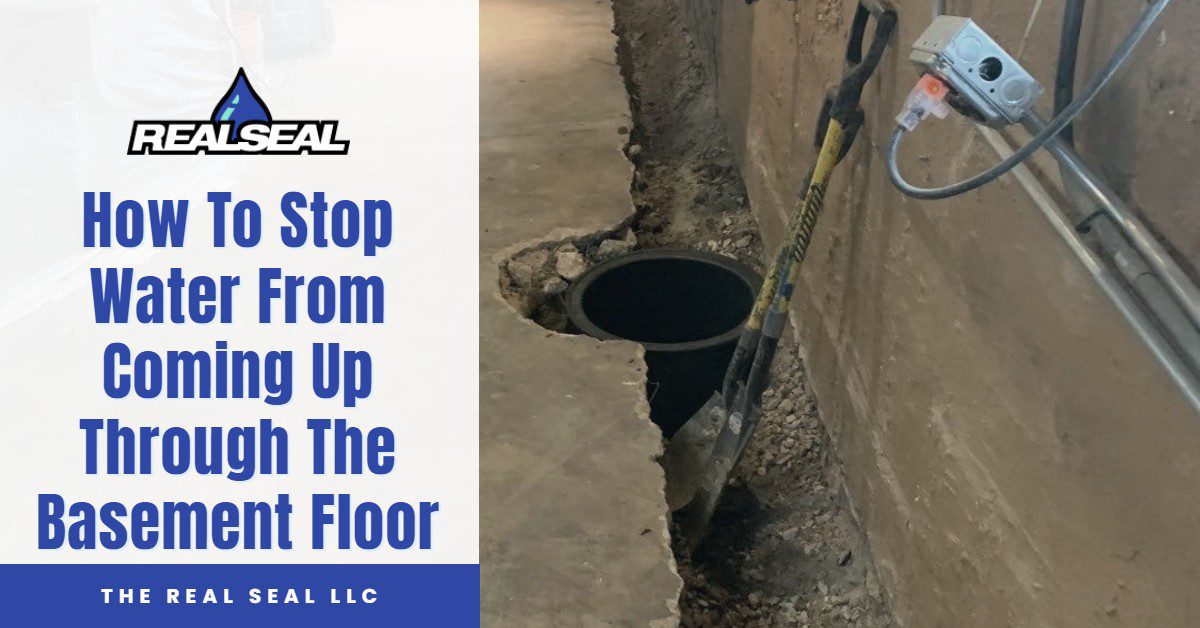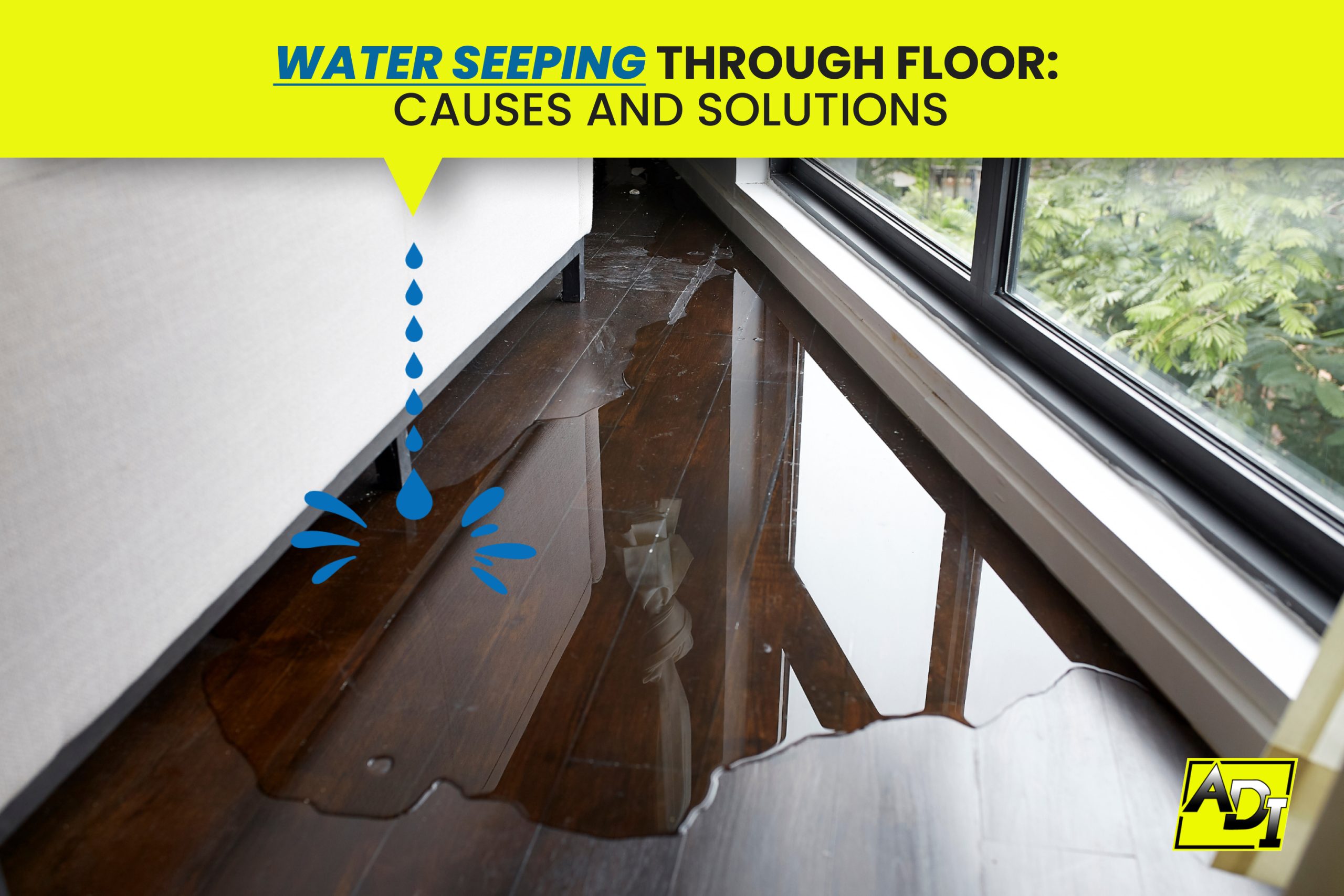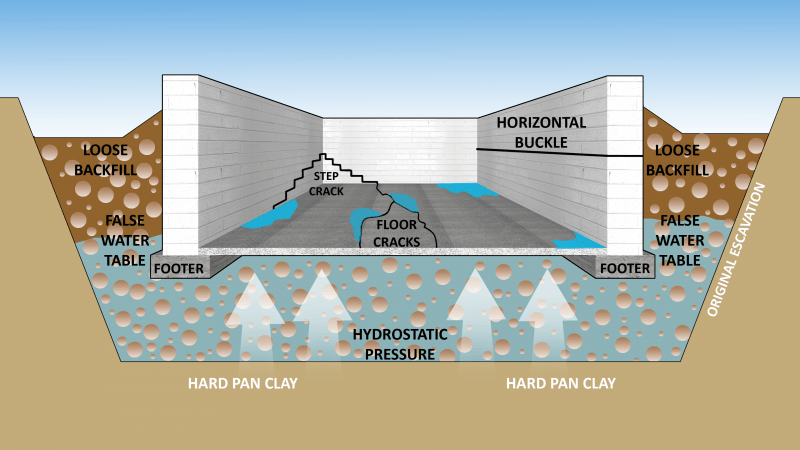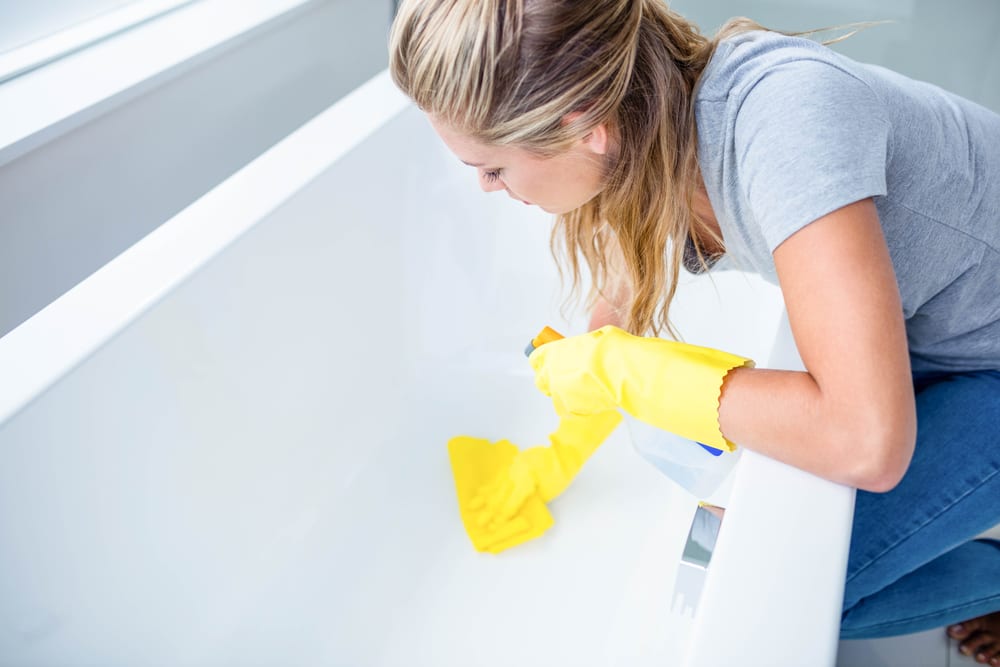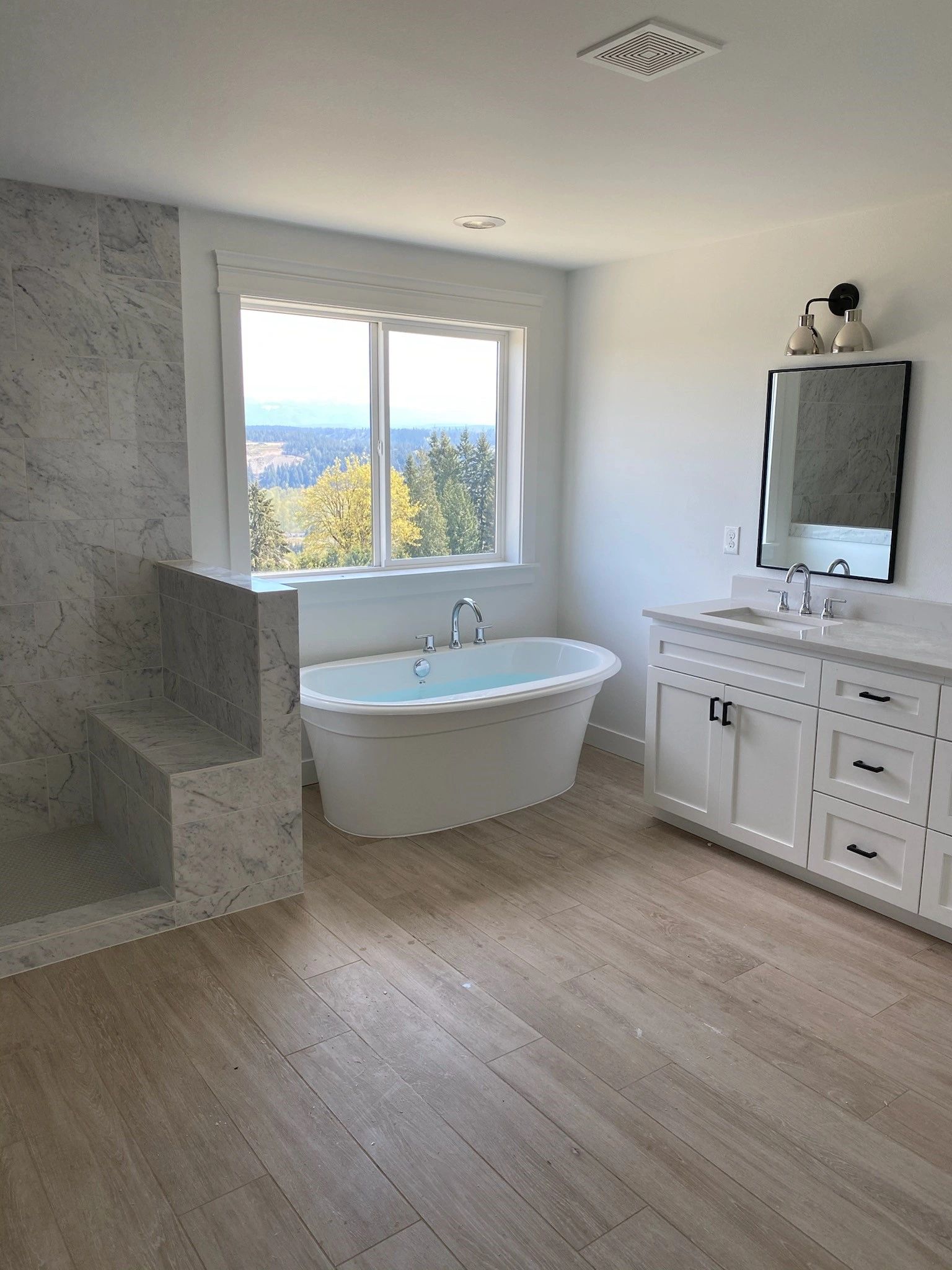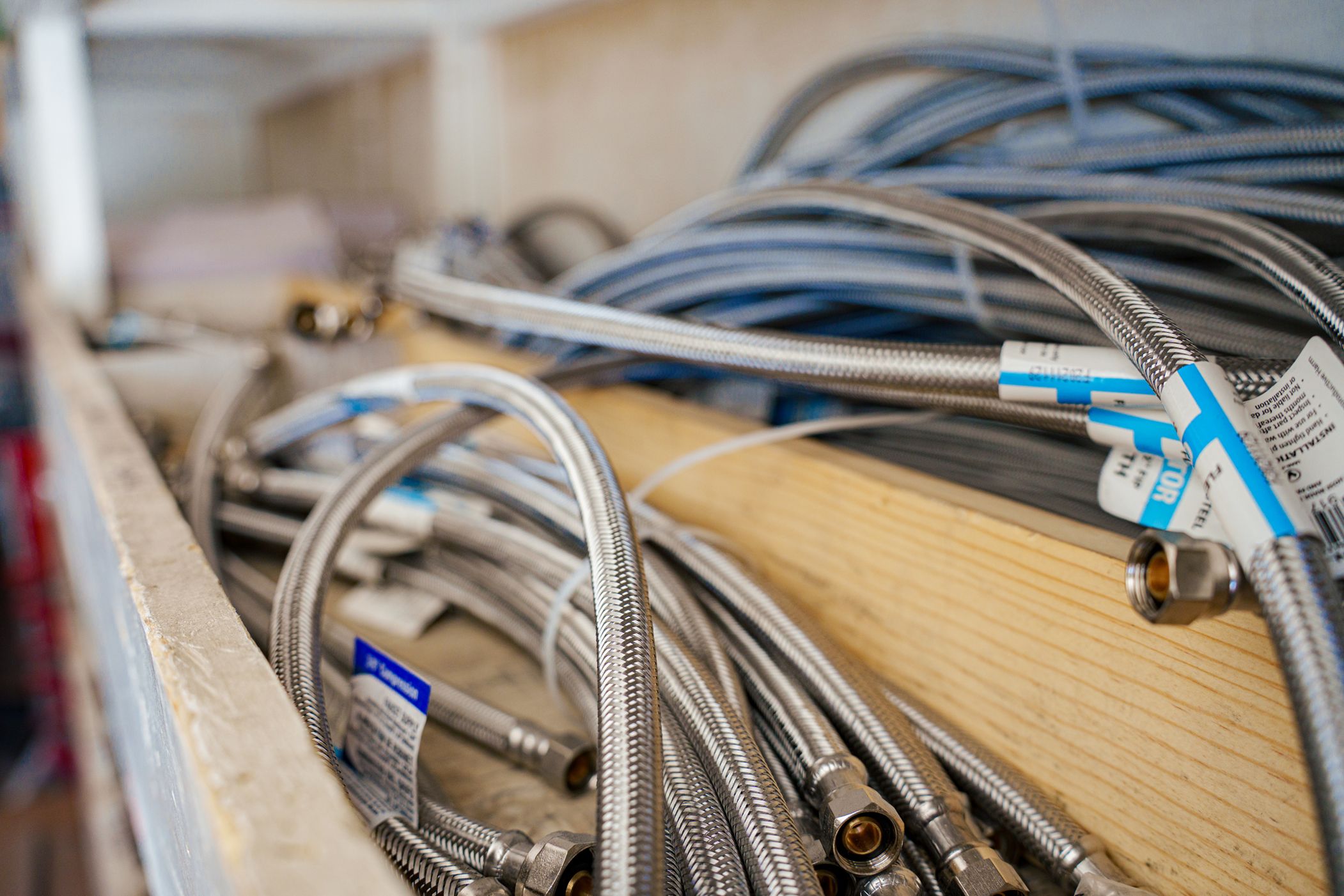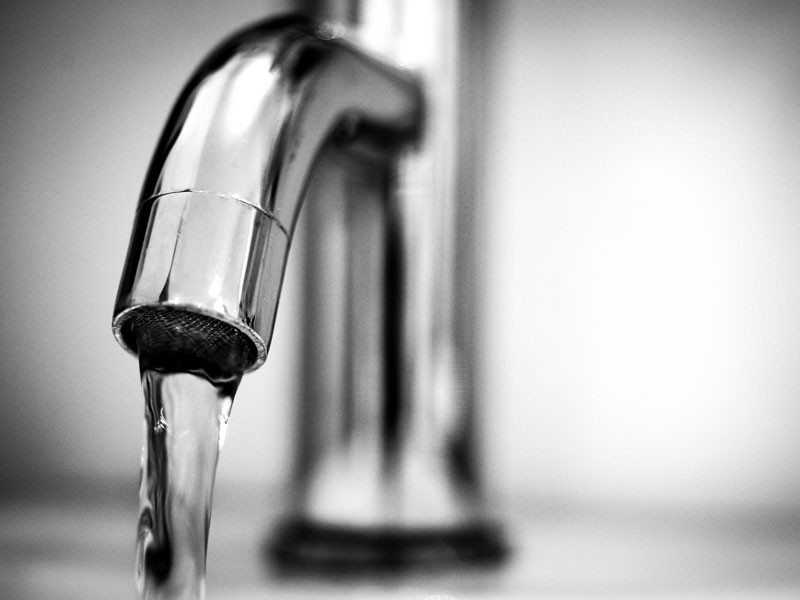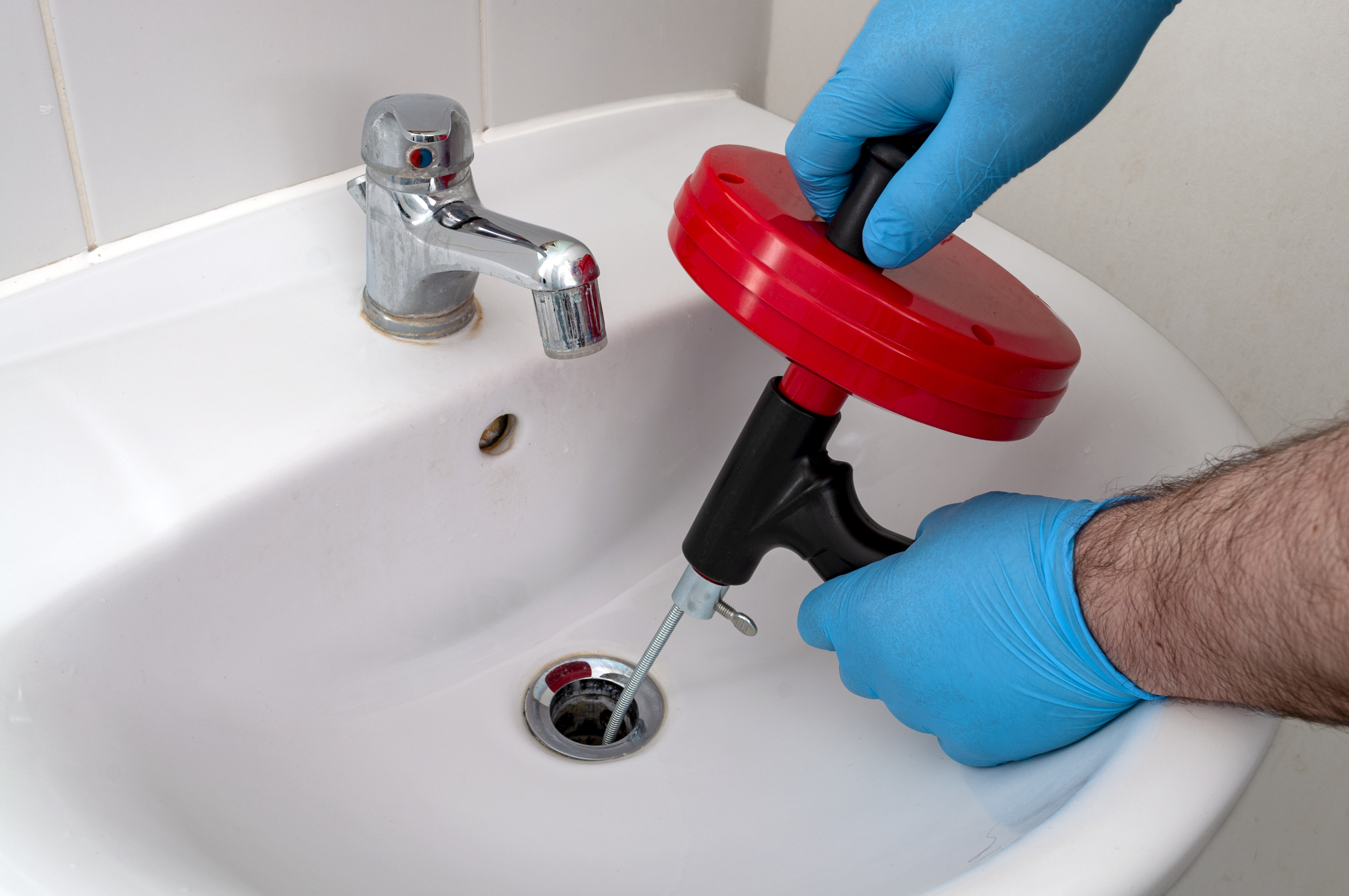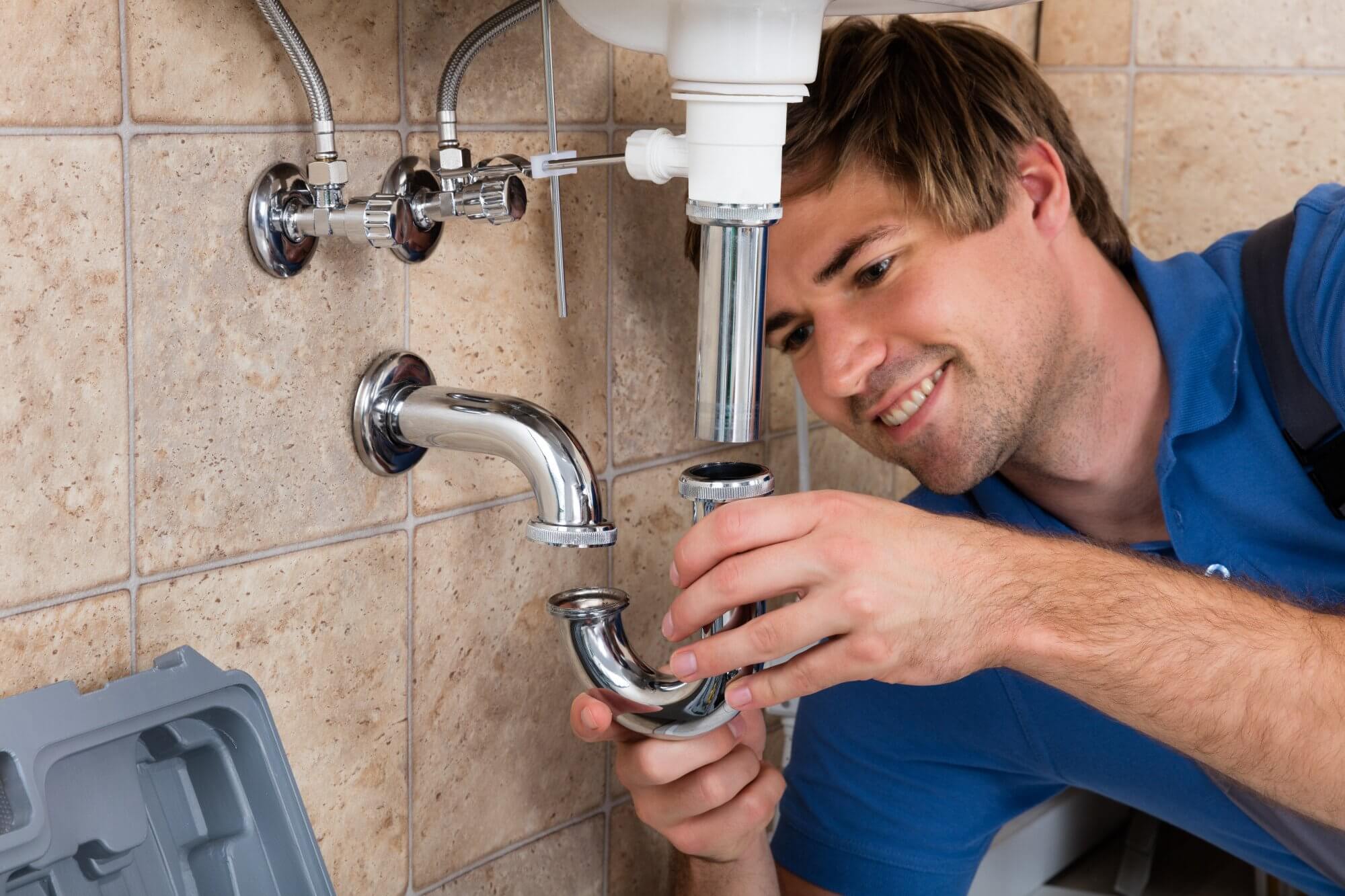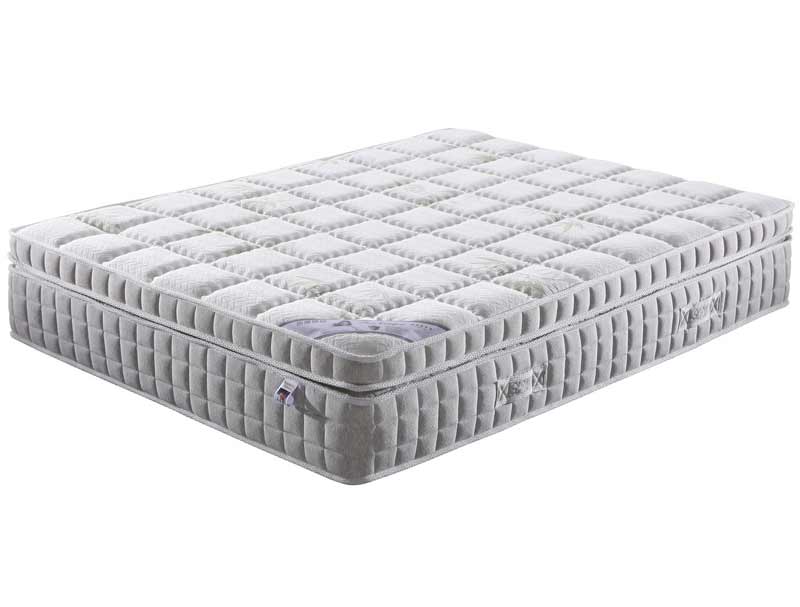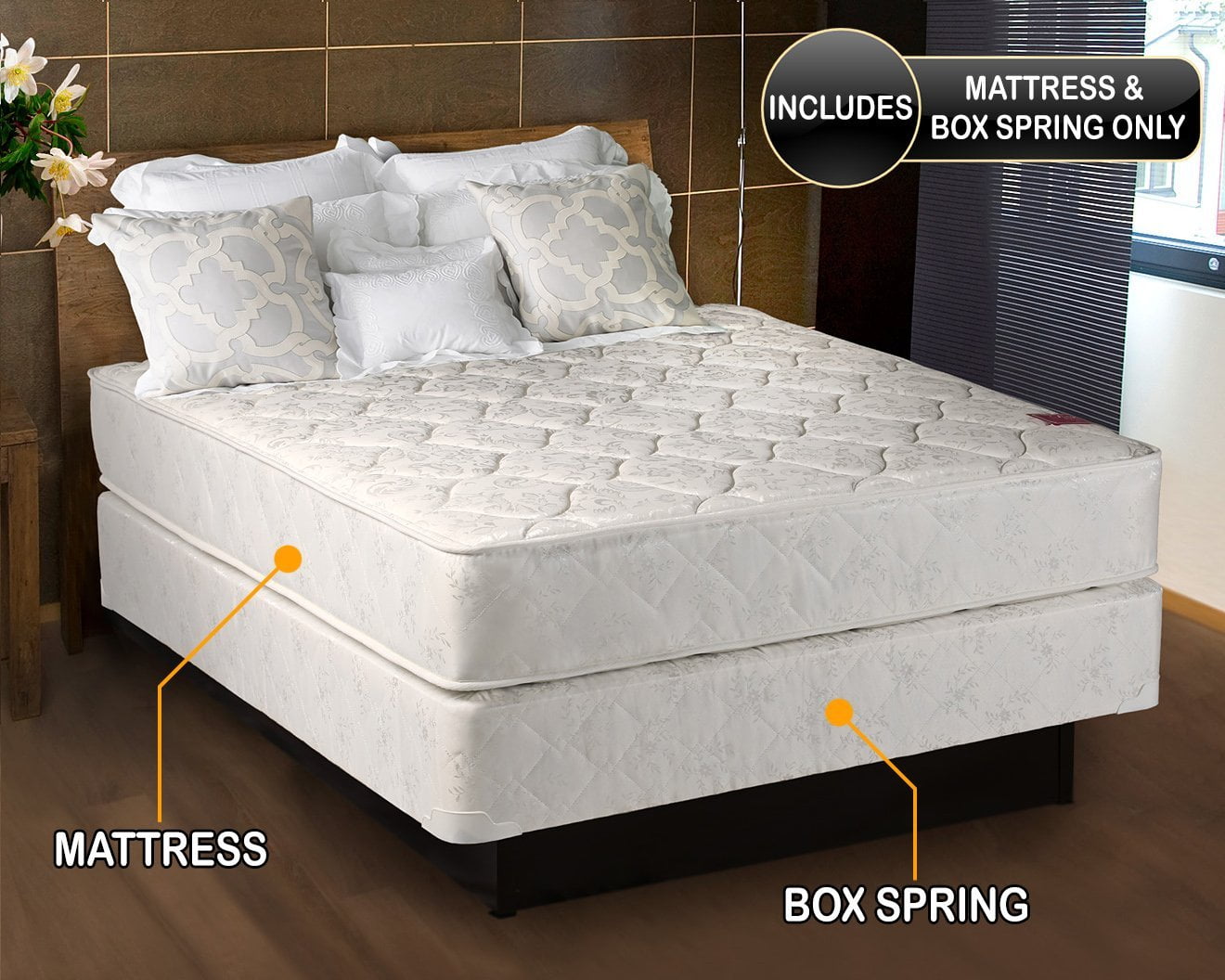Plumbing: How to Fix a Clogged Bathroom Sink
If you're experiencing the frustration of a slow draining bathroom sink, you're not alone. This common plumbing issue can be caused by a variety of factors, ranging from a simple clog to a more serious underlying issue. Luckily, there are some easy steps you can take to unclog your sink and get the water flowing freely again.
First, try using a plunger to dislodge the clog. Place the plunger over the drain and push down firmly, then pull up quickly. Repeat this motion several times to create suction and hopefully break up the clog. If this doesn't work, move on to the next step.
Next, try using a homemade drain cleaner. Mix equal parts baking soda and vinegar and pour it down the drain. Let it sit for about 15 minutes, then pour boiling water down the drain to flush out the mixture. This can help break down any buildup or debris causing the clog.
If these DIY solutions don't work, it may be time to call in a professional plumber. They have the tools and expertise to effectively clear even the toughest clogs and get your sink back to working condition.
How to Unclog a Bathtub Drain
Clogged bathtub drains can be a major inconvenience, and can even lead to water backing up into your sink. To clear a clogged bathtub drain, start by removing any visible debris or hair from the drain. Then, try using a plunger to create suction and break up the clog. If that doesn't work, a plumbing snake or drain auger may be necessary to reach and remove the clog.
If you're dealing with a stubborn clog that won't budge, it's best to call a professional plumber. They have specialized tools and techniques to effectively clear clogs and get your bathtub drain flowing freely once again.
Common Causes of a Slow Draining Bathroom Sink
A slow draining bathroom sink can be caused by a variety of factors, including a buildup of hair, soap scum, or other debris in the drain. Additionally, using too much toilet paper or flushing non-flushable items can also contribute to clogs and slow draining. In some cases, a more serious issue such as a broken pipe or tree root intrusion may be the culprit.
To prevent slow draining bathroom sinks, make sure to regularly clean and clear out the drain and avoid flushing anything besides human waste and toilet paper down the toilet. If the issue persists, it's best to consult a professional plumber to identify and fix the underlying problem.
How to Clear a Clogged Bathroom Sink Drain
If your bathroom sink is completely clogged and not draining at all, it's important to address the issue as soon as possible to prevent further damage or backups. First, try using a plunger to create suction and break up the clog. If that doesn't work, try using a drain snake or auger to reach and remove the clog. You can also try using a homemade drain cleaner made of baking soda and vinegar, or a chemical drain cleaner specifically designed for bathroom sinks.
If these methods don't work, it's best to call a professional plumber. They have the skills and tools to effectively clear tough clogs and get your sink back to working condition.
DIY Solutions for a Backed Up Bathroom Sink
If you notice water coming up in your bathtub when you use the sink, it's likely that the two drains are connected and there is a clog somewhere in the shared drain line. To address this issue, you can try using a plunger or drain snake on both the sink and bathtub drains to try and dislodge the clog. You can also try using a chemical drain cleaner, but be sure to use one specifically designed for both sink and bathtub drains.
If these DIY solutions don't work, it's best to call a professional plumber. They can properly diagnose the issue and use their expertise to effectively clear the clog and prevent future backups.
Why is Water Coming Up in My Bathtub?
If you're experiencing the unpleasant surprise of water coming up in your bathtub when you use the sink, it's likely due to a clog in the shared drain line. This can be caused by a variety of factors, including hair, soap scum, or debris buildup in the drain. In some cases, a more serious issue such as a broken pipe or tree root intrusion may be the cause.
To prevent this issue, make sure to regularly clean and clear out your sink and bathtub drains, and avoid flushing anything besides human waste and toilet paper down the toilet. If the issue persists, it's best to consult a professional plumber.
How to Fix a Bathtub Drain That Won't Drain
A bathtub drain that won't drain can be a frustrating and inconvenient issue. To fix it, start by removing any visible debris or hair from the drain. Next, try using a plunger to create suction and break up the clog. If that doesn't work, a plumbing snake or drain auger may be necessary to reach and remove the clog. You can also try using a chemical drain cleaner, but be sure to follow the instructions carefully.
If these DIY solutions don't work, it's best to call a professional plumber. They have the expertise and tools to effectively clear even the toughest clogs and get your bathtub drain back to working properly.
Possible Reasons for Water Backing Up in Your Bathtub
Water backing up in your bathtub can be a frustrating and messy issue. It's often caused by a clog in the shared drain line between the sink and bathtub. This can be caused by a buildup of hair, soap scum, or other debris in the drain. In some cases, a more serious issue such as a broken pipe or tree root intrusion may be the cause.
To prevent this issue, make sure to regularly clean and clear out both your sink and bathtub drains, and avoid flushing anything besides human waste and toilet paper down the toilet. If the issue persists, it's best to consult a professional plumber to properly diagnose and fix the issue.
How to Prevent Water from Coming Up in Your Bathtub
The best way to prevent water from coming up in your bathtub is to regularly clean and clear out your sink and bathtub drains. This can help prevent clogs and backups in the shared drain line. Additionally, avoid flushing anything besides human waste and toilet paper down the toilet. If you notice any slow draining or backups, address them as soon as possible to prevent further issues.
If you're experiencing frequent backups or water coming up in your bathtub, it may be a sign of a more serious underlying issue. In this case, it's best to consult a professional plumber to identify and fix the problem.
Professional Plumbing Services for Bathroom Sink and Bathtub Issues
If you're dealing with a stubborn clog or frequent backups in your bathroom sink and bathtub, it's best to call a professional plumber. They have the expertise and specialized tools to effectively diagnose and fix the issue, ensuring your sinks and drains are working properly and preventing future problems.
Professional plumbers can also help with preventative maintenance, such as regular drain cleaning, to keep your bathroom plumbing in top shape and prevent clogs and backups. Don't hesitate to call a plumber if you're experiencing any plumbing issues in your bathroom, as addressing them early can save you time, money, and frustration in the long run.
The Common Problem of Bathroom Sink Water Coming Up in the Tub
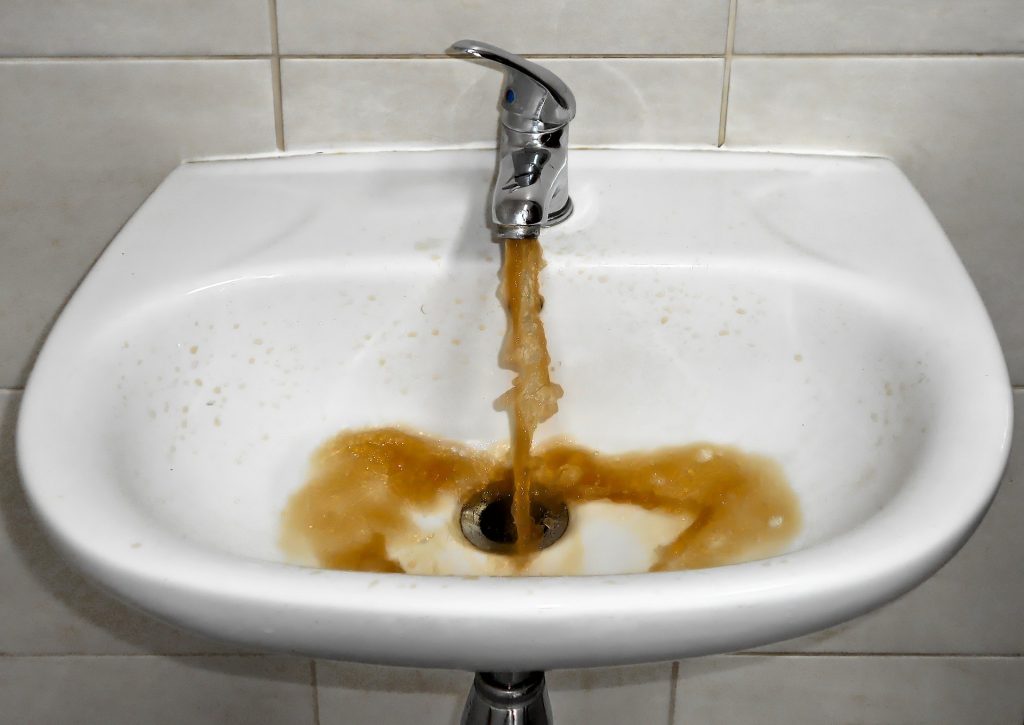
Understanding the Issue
 If you have ever experienced water coming up in your bathroom tub when you turn on the sink, you are not alone. This is a common problem that many homeowners face, and it can be quite frustrating. Not only does it cause inconvenience, but it can also lead to potential water damage and plumbing issues if left unaddressed. In this article, we will discuss the main causes of this problem and provide some solutions to help you fix it.
If you have ever experienced water coming up in your bathroom tub when you turn on the sink, you are not alone. This is a common problem that many homeowners face, and it can be quite frustrating. Not only does it cause inconvenience, but it can also lead to potential water damage and plumbing issues if left unaddressed. In this article, we will discuss the main causes of this problem and provide some solutions to help you fix it.
Causes of Bathroom Sink Water Coming Up in the Tub
/close-up-of-overflowing-bathroom-sink-90201417-579787783df78ceb865822d8.jpg) There are a few reasons why water may come up in your tub when you use the sink. One of the most common causes is a clogged drain. Over time, debris, hair, and other substances can build up in your drain, causing a blockage. When you turn on the sink, the water has nowhere to go but back up the drain and into the tub. Another cause could be a faulty or incorrectly installed plumbing system. If the pipes are not connected properly, it can lead to cross-connections, where the wastewater from the sink flows into the tub instead of the sewer line.
There are a few reasons why water may come up in your tub when you use the sink. One of the most common causes is a clogged drain. Over time, debris, hair, and other substances can build up in your drain, causing a blockage. When you turn on the sink, the water has nowhere to go but back up the drain and into the tub. Another cause could be a faulty or incorrectly installed plumbing system. If the pipes are not connected properly, it can lead to cross-connections, where the wastewater from the sink flows into the tub instead of the sewer line.
Solutions to the Problem
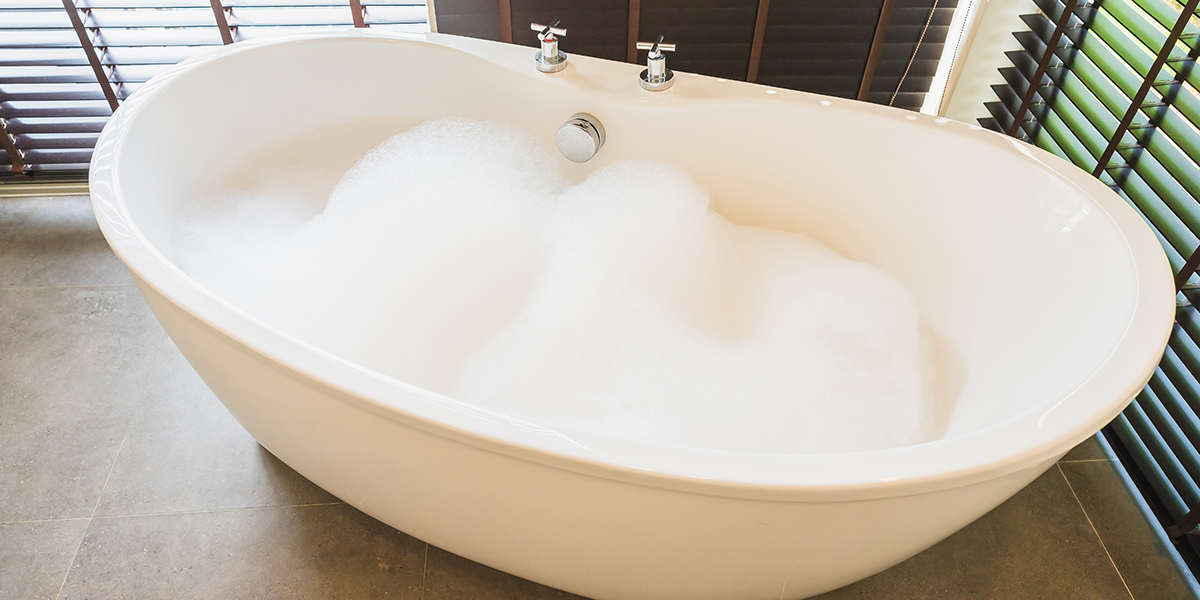 The first step in fixing this issue is identifying the cause. If it is a clogged drain, you can try using a plunger or a drain snake to clear the blockage. However, if the issue persists, it is best to call a professional plumber. They have the expertise and tools to effectively unclog your drain and ensure it does not happen again. If the problem is due to a plumbing issue, a plumber will also be able to assess and fix the problem.
Another solution is to install a drain stopper in your sink. This can prevent debris from going down the drain and causing a clog. Additionally, regular maintenance and cleaning of your plumbing system can help prevent future problems.
The first step in fixing this issue is identifying the cause. If it is a clogged drain, you can try using a plunger or a drain snake to clear the blockage. However, if the issue persists, it is best to call a professional plumber. They have the expertise and tools to effectively unclog your drain and ensure it does not happen again. If the problem is due to a plumbing issue, a plumber will also be able to assess and fix the problem.
Another solution is to install a drain stopper in your sink. This can prevent debris from going down the drain and causing a clog. Additionally, regular maintenance and cleaning of your plumbing system can help prevent future problems.
Conclusion
 In conclusion, if you are experiencing the issue of bathroom sink water coming up in the tub, it is important to address it as soon as possible. Ignoring the problem can lead to further damage and inconvenience. By understanding the causes and implementing the solutions mentioned above, you can fix this common issue and maintain a functional and efficient plumbing system in your home. Remember, if the problem persists, do not hesitate to seek the help of a professional plumber.
In conclusion, if you are experiencing the issue of bathroom sink water coming up in the tub, it is important to address it as soon as possible. Ignoring the problem can lead to further damage and inconvenience. By understanding the causes and implementing the solutions mentioned above, you can fix this common issue and maintain a functional and efficient plumbing system in your home. Remember, if the problem persists, do not hesitate to seek the help of a professional plumber.



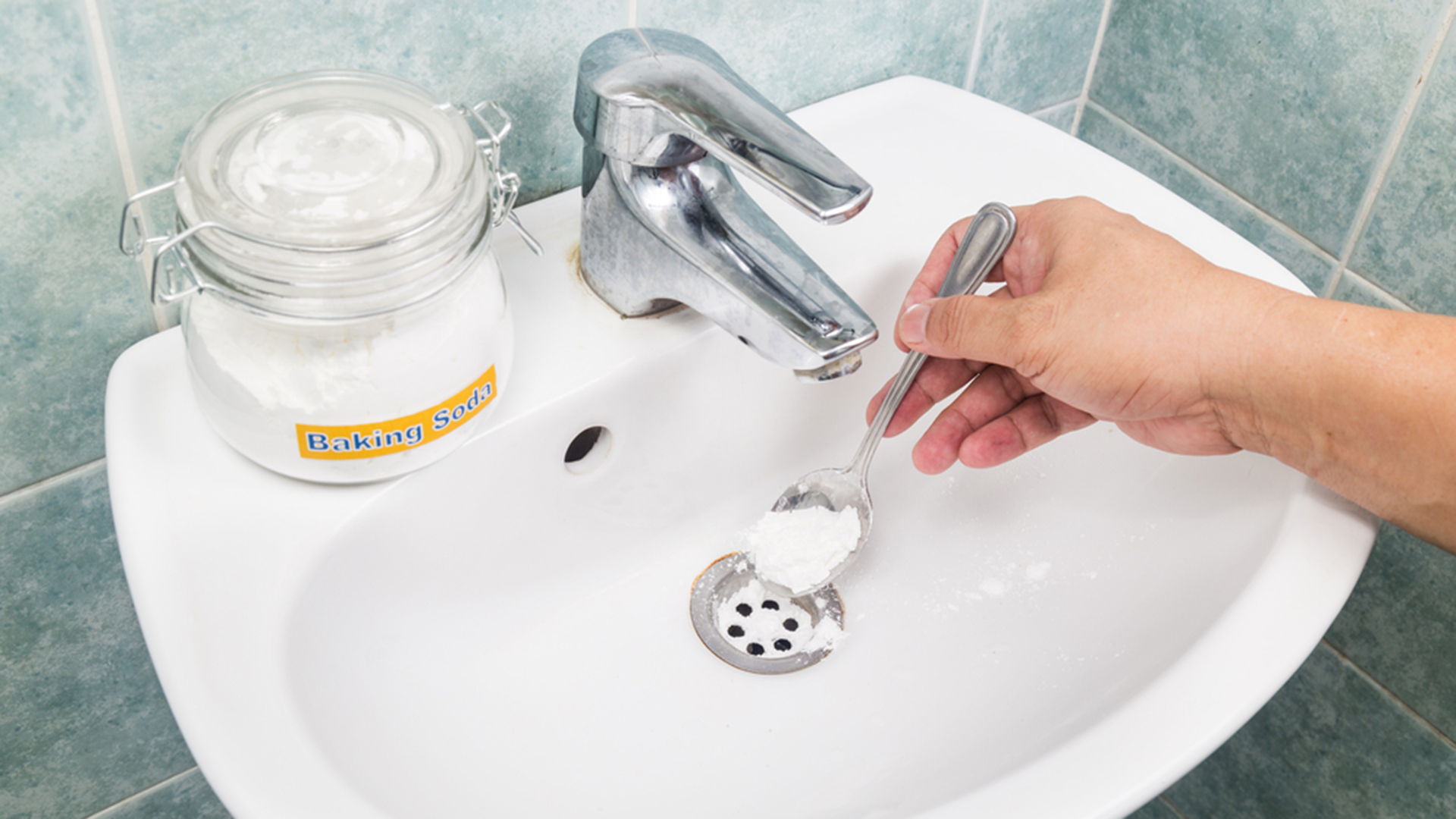












/cdn.vox-cdn.com/uploads/chorus_asset/file/19616741/drain_xl_0.jpg)




/plunger-and-clogged-bath--1199279746-9e2a05ab39f24ebeb6c9326292f8289e.jpg)


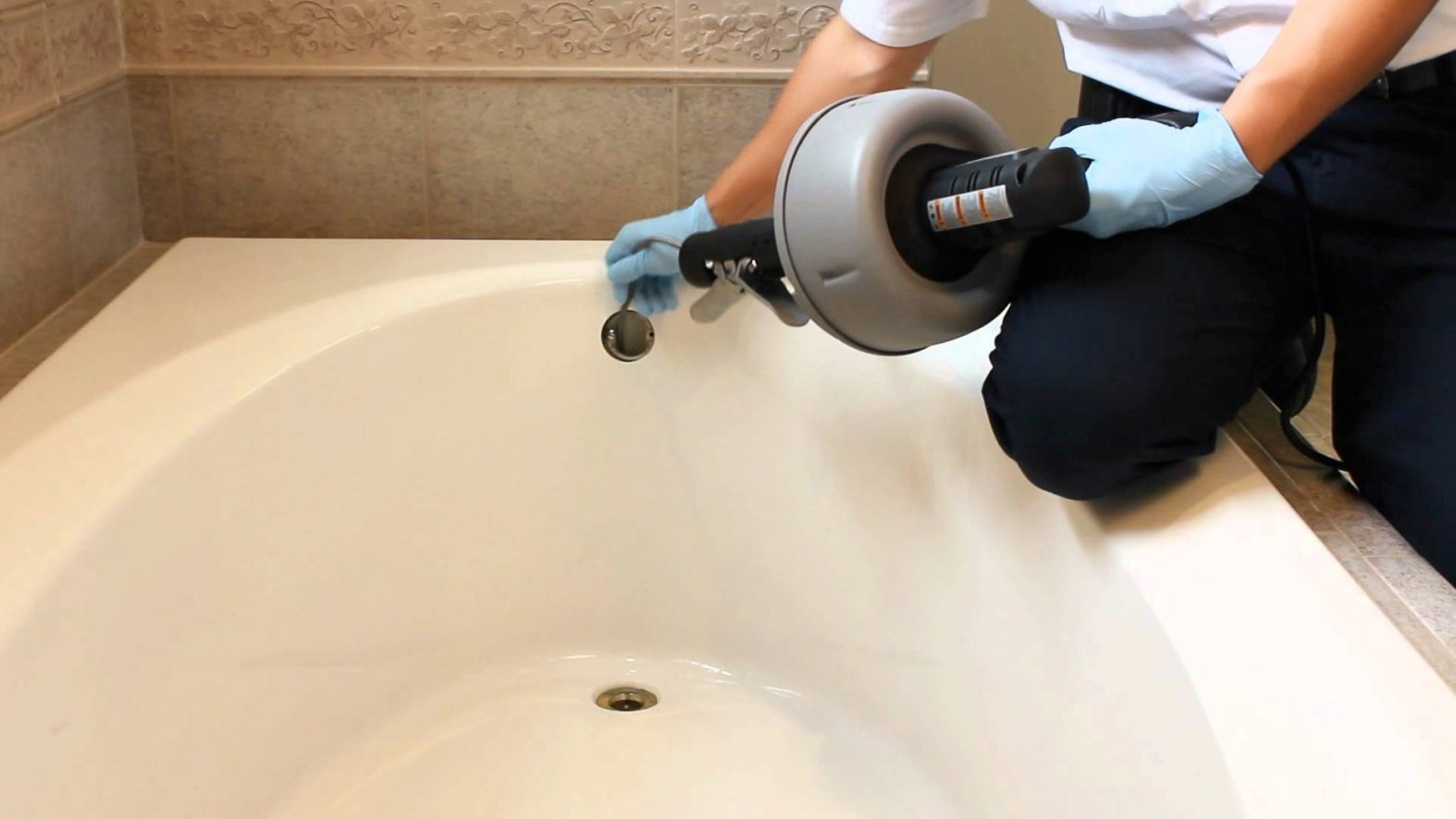



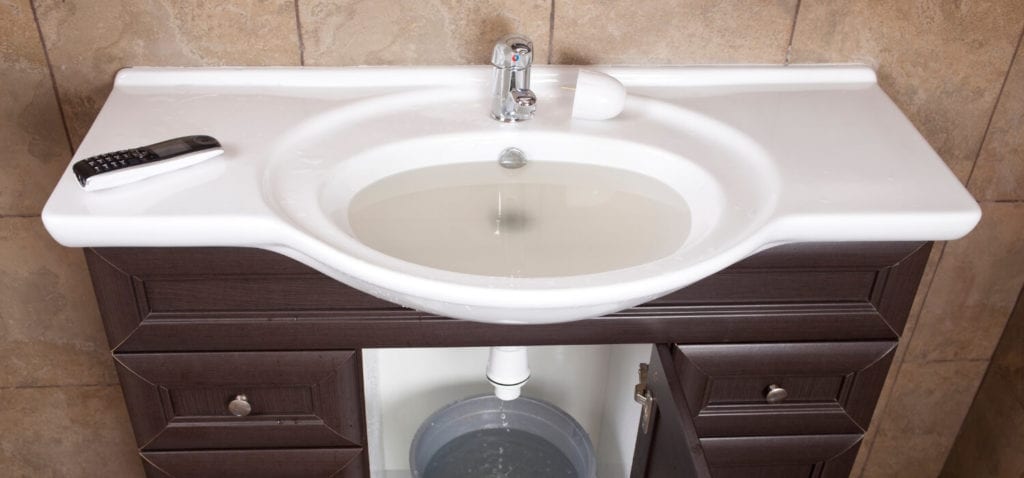











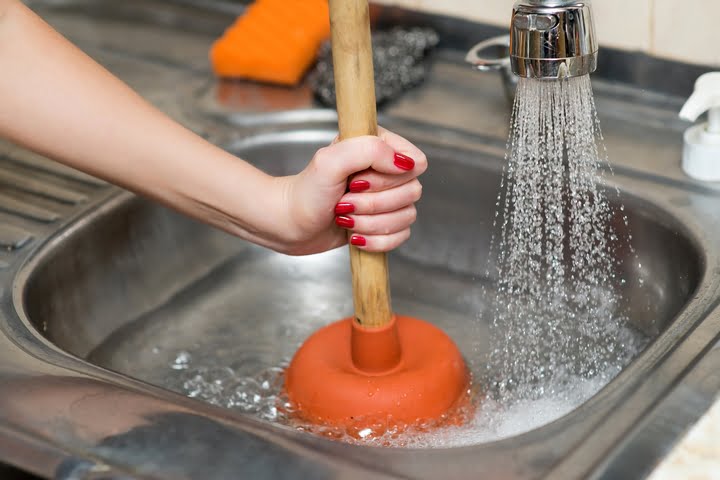
:max_bytes(150000):strip_icc()/freshen-and-unclog-drain-with-baking-soda-1900466-22-bbf940b70afa4d5abef0c54da23b1d3f.jpg)


